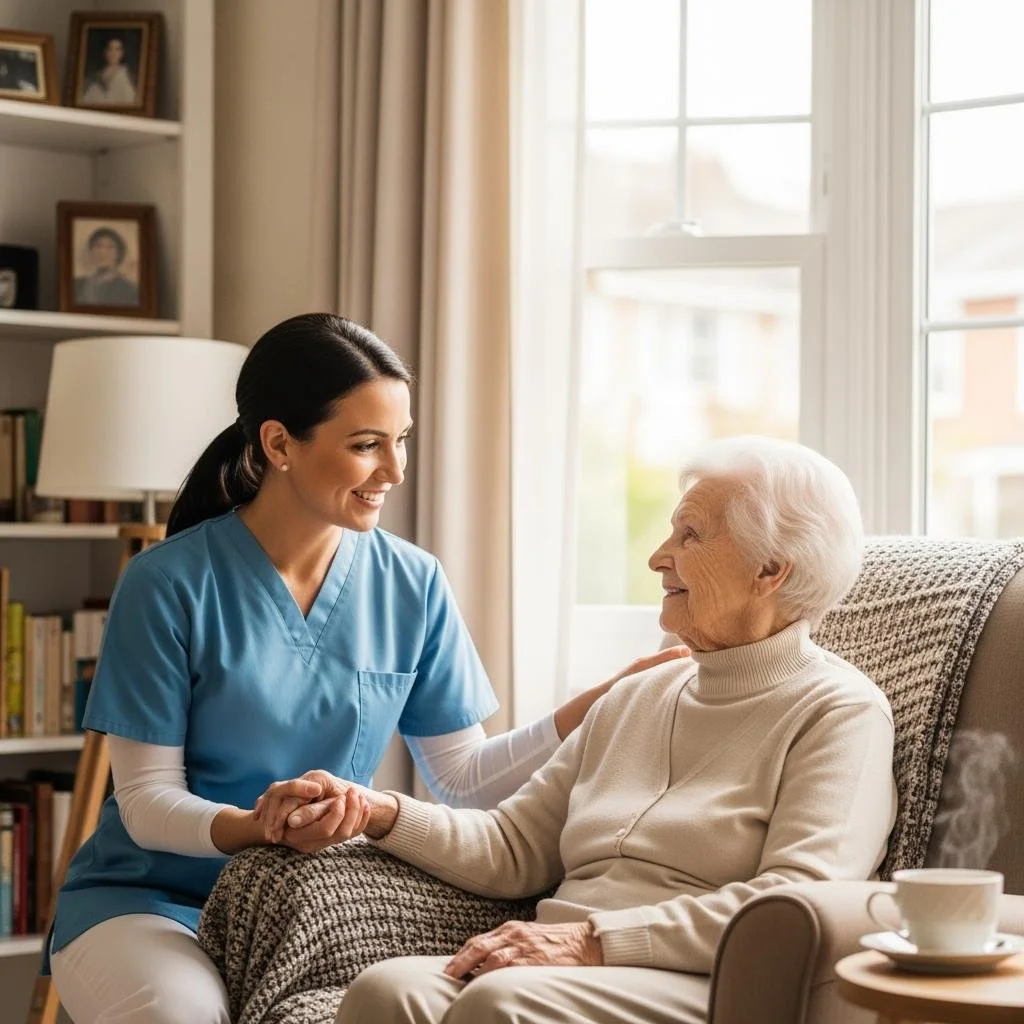How To Reduce Mental Health Stigma Among Seniors
Mental health is a vital part of overall well-being at any age, yet for many older adults, it remains a topic shrouded in silence. Despite facing unique emotional and psychological challenges—such as grief, isolation, or chronic illness—many seniors avoid discussing their mental health. Why? Often, the answer lies in fear, shame, or deeply rooted stigma.
In this article, we explore the reasons behind this silence and offer practical, compassionate strategies to help break the stigma. By encouraging open dialogue, providing accurate information, and fostering supportive communities, we can empower seniors to seek the help they deserve and live fuller, healthier lives.
No. 1
Why Do Seniors Avoid Talking About Mental Health?
Many older adults grew up in a time when mental health was misunderstood or even feared. Psychological struggles were often seen as personal failings rather than medical conditions. This cultural backdrop has left lasting impressions, making it difficult for some seniors to speak openly about their emotions.
Common Barriers Include:
Fear of being judged or misunderstood
Belief that mental illness is a sign of weakness
Lack of awareness about mental health conditions
Limited access to mental health resources
Generational stigma and outdated stereotypes
These barriers can prevent seniors from seeking the support they need, leading to untreated depression, anxiety, and other mental health issues that significantly impact quality of life.
No. 2
Encourage Open Conversations
One of the most effective ways to combat stigma is through honest, compassionate conversations. When seniors feel safe to express their emotions without fear of judgment, they’re more likely to seek help and support.
How to Foster Open Dialogue:
Ask gentle, open-ended questions about how they’re feeling
Listen actively and without interruption
Validate their experiences rather than minimizing them
Avoid using dismissive language, such as “It’s just part of getting old”
Even small, consistent conversations can normalize mental health discussions and make seniors feel seen and heard. Over time, these interactions can reduce shame and build trust.
No. 3
Provide Accurate Information
Misconceptions about mental health are widespread, especially among older generations. Many seniors may not realize that conditions like depression or anxiety are treatable, or they may confuse symptoms with normal aging.
Ways to Share the Facts:
Distribute easy-to-read pamphlets or brochures at community centers
Recommend trusted websites or online resources with senior-friendly language
Host informational sessions at local libraries or senior centers
Encourage healthcare providers to discuss mental health during routine checkups
By replacing myths with facts, we empower seniors to make informed decisions about their mental well-being. Accurate knowledge also helps caregivers and family members respond with empathy and understanding.
Hilu
Ensure you and your loved ones enjoy a deeper, more restful sleep with the only blanket that actively adapts to keep your temperature perfect
No. 4
Promote Community Support
Isolation is a major risk factor for poor mental health in older adults. Community engagement can provide a sense of purpose, connection, and belonging—key ingredients for emotional resilience.
Community-Based Solutions:
Join support groups for seniors dealing with grief, illness, or loneliness
Participate in group activities like art classes, book clubs, or walking groups
Volunteer opportunities that allow seniors to give back and feel valued
Attend local events or workshops focused on wellness and connection
When seniors feel part of a community, they’re more likely to open up about their struggles and seek help when needed. Strong social ties can dramatically improve mental health outcomes.
No. 5
Train Caregivers and Staff
Caregivers, nurses, and senior living staff are often the first to notice changes in behavior or mood. With proper training, they can become powerful allies in reducing stigma and encouraging mental health care.
Key Training Topics:
Recognizing signs of depression, anxiety, or cognitive decline
Communicating with empathy and without judgment
Knowing when and how to refer seniors to mental health professionals
Creating a safe and supportive environment for open discussion
When caregivers are educated and compassionate, seniors feel more comfortable discussing their mental health. This trust can lead to earlier interventions and better outcomes.
No. 6
Celebrate Mental Health Awareness
Public awareness campaigns and events can help reduce senior mental health stigma. and show seniors that they are not alone.
Ideas for Raising Awareness:
Host Mental Health Awareness Month events tailored to older adults
Share stories of recovery and resilience from fellow seniors
Create bulletin boards or newsletters with mental health tips and resources
Invite guest speakers—such as therapists or peer advocates—to share insights
Celebrating mental health not only educates but also inspires. It sends a clear message: seeking help is a sign of strength, not weakness.
No. 7
Building a Kinder Community
Ultimately, reducing mental health stigma among seniors requires a collective effort. When families, caregivers, healthcare providers, and communities come together, we can create an environment where older adults feel safe, respected, and supported.
Simple Ways to Make a Difference:
Talk openly about mental health with the seniors in your life
Offer a listening ear without trying to “fix” everything
Encourage professional help when needed
Celebrate small victories in mental health awareness
A kinder community is one where no one feels ashamed to ask for help. By fostering empathy and understanding, we can help seniors live with dignity, confidence, and emotional well-being.
Takeaways
Older adults should never feel ashamed or afraid to talk about their mental health. Yet for many, stigma and outdated beliefs still stand in the way of healing. By encouraging open conversations, providing accurate information, promoting social support, and training caregivers, we can break down these barriers.
Mental health is just as important in later life as it is at any other age. Together, we can create a compassionate, informed community where seniors feel safe to speak, seek help, and thrive.
Let’s work toward a future where every older adult knows: it’s okay to not be okay—and it’s more than okay to ask for help.
Looking for Wellness resources?
Are you looking to enhance your wellness routine? Explore our wellness partners who offer a wide range of resources to support your journey toward holistic living and well-being.































